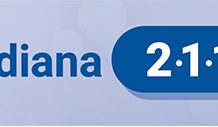The rise in initial claims for the week ending Dec. 5 likely reflects a rise in fraudulent attempts
An elderly woman receives an overpayment notice on unemployment insurance (UI) claim, though she’s never filed for benefits. A company in southern Indiana discovers that claims have been filed using the names of several senior-level managers. And more broadly, across the state, more Hoosier employees are reporting their identities having been stolen to file even more claims.
For the week ending Dec. 5, 26,910 initial unemployment claims were filed with the Indiana Department of Workforce Development, a number likely inflated by the rise in fraudulent attempts to file UI claims. Indiana and many other states continue to combat the increase amid new and emerging fraud schemes.
“It’s really increasing in all forms and fashions,†said Regina Ashley, DWD’s chief unemployment insurance and workforce solutions officer, of the increase in fraudulent activity. “DWD has many prevention and detection tools in place to thwart as much of that activity as possible. But even with these tools, both individuals and employers are not immune to these attacks.â€
DWD is responsible for administering unemployment benefits to Hoosiers. The coronavirus has led to an unprecedented increase in the number of individuals filing claims to receive unemployment benefits in regular UI programs as well as Coronavirus Aid, Relief and Economic Security (CARES) Act programs, specifically the Pandemic Unemployment Assistance (PUA) program. PUA is available to individuals who are self-employed, seeking part-time employment, or who otherwise would not qualify for regular unemployment compensation.
Roughly $100 million in federal funding has been made available to support state efforts to combat fraud and recover improper payments. The Government Accountability Office, the nonpartisan auditing agency that works for Congress, has cited fraud as one of the causes contributing to inflated claims numbers across the country.
DWD is working closely with the Indiana State Police, U.S. Department of Labor Office of Inspector General, FBI, Secret Service and the Indiana Attorney General’s Office, as well as several banking partners, to ensure appropriate prosecution and recovery of funds where possible, once identity theft is discovered. Once the theft is reported to DWD, the agency revokes the UI account and cooperates with law enforcement and banks, but it’s up to them, and not DWD, to locate the criminals and prosecute them.
To protect against identity theft, never post personal information online or to social media. Anyone awaiting their initial unemployment payment who posts on social media their name and personal information, asking for assistance to expedite their claim, is putting themselves at risk for fraud. Never pay anyone who says they can speed up your UI claim or get you your money faster. Also, monitor your credit reports and bank accounts.
If you do become a victim, freeze or put a fraud alert on your credit and notify your bank. Anyone who has received a fraudulent call and has given any personal information to a potential fraudster should contact the Federal Trade Commission to report the potential identity theft at https://www.identitytheft.gov/?utm_source=takeaction.
Employers should protest any fraudulently filed UI claim by completing the Benefits Claims protest form (640P) at: https://www.in.gov/dwd/indiana-unemployment/employers/forms-downloads. Employers also can report fraud through DWD’s fraud webpage at https://www.in.gov/dwd/2464.htm.
Regarding 1099 tax forms issued by DWD for unemployment benefits, DWD is disassociating UI payments from any claimant where there is a confirmed case of ID theft. So as long as this is done, the claimant will have no IRS issues. If ID theft has not been reported to DWD or DWD hasn’t tagged the account as ID theft, then this will not occur.





